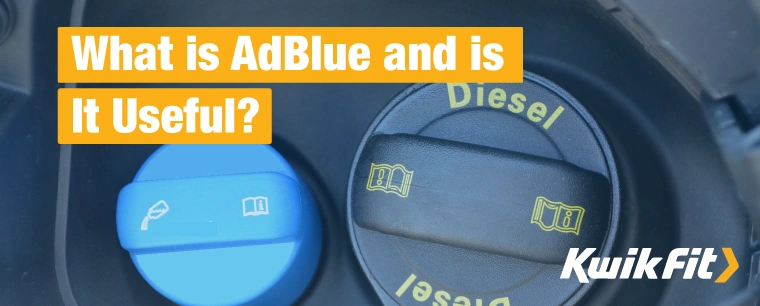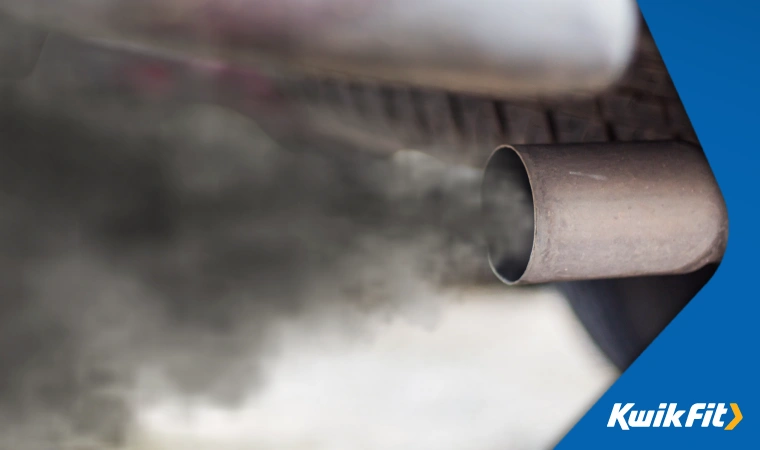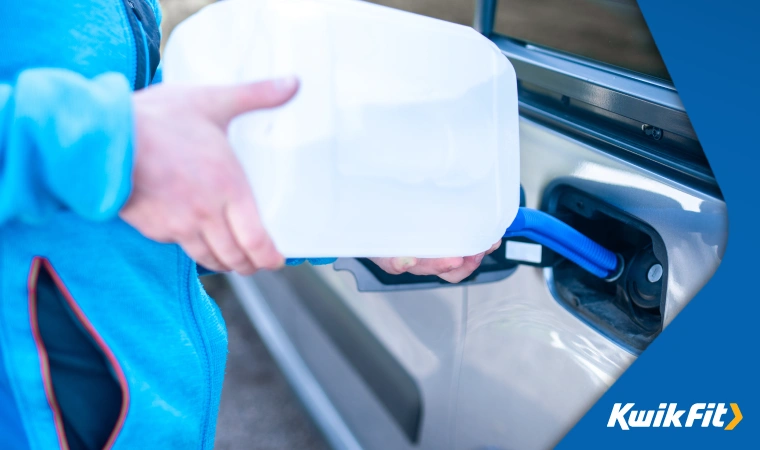What's AdBlue and is it Useful?
Jack Dreyer | Monday 21st November 2022 8:00am

With increasing importance being placed on the reduction of emissions, more and more modifications are being made to vehicles to curb their impact on the environment.
While AdBlue isnít a new invention (it first came about in 2006), itís only recently come to the fore for diesel drivers. Namely, the Euro 6 legislation in 2016 stated that nitrogen oxide emissions of diesel cars needed to be reduced to a maximum of 80mh/km.
Itís AdBlue that helps diesel cars meet these standards. But letís look a little closer at what many perceive to simply be a chore to use.
What does AdBlue do?

In line with the Euro 6 standards, AdBlue reduces the amount of emissions that come from a diesel carís exhaust. In fact, some AdBlue suppliers say that it reduces emissions by up to 95%.
While it wonít eliminate all of your carís emissions, it reduces them significantly. Not only is this vital for the environment, but for our wellbeing, too ó as these emissions can contribute to issues with respiratory health.
The colourless, odourless, non-toxic solution is made from urea and demineralised water. When injected into the engineís exhaust system, it creates a chemical reaction that results in the nitrogen oxide being converted into water vapour and nitrogen. As you might have guessed, water vapour is entirely harmless for the environment!
Is AdBlue useful?
In reducing emissions, AdBlue is absolutely crucial.
On the level of personal use, itís a legal requirement for vehicles fitted with the technology to use it ó a Selective Catalytic Reduction system.
- Regarding performance, if you donít refill your AdBlue, two things will happen:
- The engineís power will be reduced to limit emissions while driving
- When you stop, you wonít be able to restart the engine until youíve put more AdBlue in.
In that sense, AdBlue is vital to staying on the roads!
Does my diesel car need AdBlue?
To check if your car needs AdBlue, simply check if the word Ďblueí or ĎSCRí are included in the name of your vehicle. For example, a Citroen BlueHDi and a VW TDI SCR both use it.
Failing that, you can check next to your fuel filler cap, under your bonnet, or in your boot for a blue AdBlue lid.

How to refill AdBlue
If your car uses this emissions-reducing fluid, itís important to stay on top of replacing it.
Fortunately, AdBlue is available at most garages and motoring shops around the UK in both small and large sizes. We suggest keeping a large bottle at home and a smaller bottle with you on the road in case of emergency.
You can check your handbook to find out exactly how big your AdBlue tank is, but most contain 10 litres or less ó and 10 litres should last you a healthy amount of time! Most diesel vehicles consume roughly a litre of AdBlue every 600 miles. So, it follows that 10 litres could last you up to 6,000 miles in theory.
When you do come to refill it, follow these simple steps:
Locate your AdBlue cap (next to the fuel lid, in the boot, or under the bonnet)
Use a funnel to carefully pour the AdBlue in
Screw the cap shut
Wash your hands and the bodywork of the vehicle that it mightíve spilled onto ó it can be irritating to skin and damage paintwork
Our AdBlue tips
Here are some general rules of thumb to stick to when using AdBlue:
- Fill your AdBlue tank as soon as you notice the warning light to avoid problems restarting.
- Refill straight from the container the AdBlue was supplied in to avoid any contamination.
- Donít dilute the product or add any other fluids as this may cause irreversible damage to your car.
- Only buy AdBlue from authorised suppliers.
- Avoid the diesel tank at all costs ó AdBlue has its own tank, and pouring it into the fuel tank can result in needing to replace the whole system.
Issues with your diesel vehicle?
If youíve got any problems with your car ó be it smoke from the exhaust, spongy brakes, or poor performance ó donít hesitate to call your local Kwik Fit garage.
Weíre here to help get you back on the roads as soon as possible and with your car performing at its best.
Any facts, figures and prices shown in our blog articles are correct at time of publication.
Featured Articles
Is it Illegal to Drive With One Headlight?
Saturday 19th July 2025
Wondering if itís illegal to drive with one headlight? Learn about the safety risks and penalties of illegal blown bulbs and why you should fix them promptly.
Air Con in EVs & Hybrids: Experts Answer Your Questions
Monday 30th June 2025
Does air con drain EV batteries? Can you use the air con while charging an electric car? Find out the answers to these questions & more from Kwik Fitís experts.
Why Is Your Car Making a Noise? Fixes & Tips
Friday 13th June 2025
When your car starts making unexpected noises, it can certainly be quite disconcerting; it may be nothing to worry about, but hereís what you need to know.









